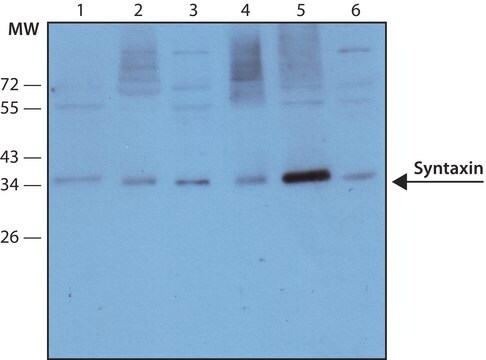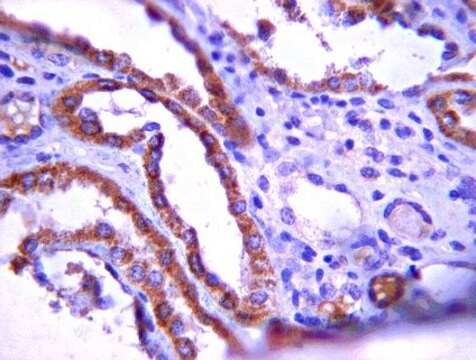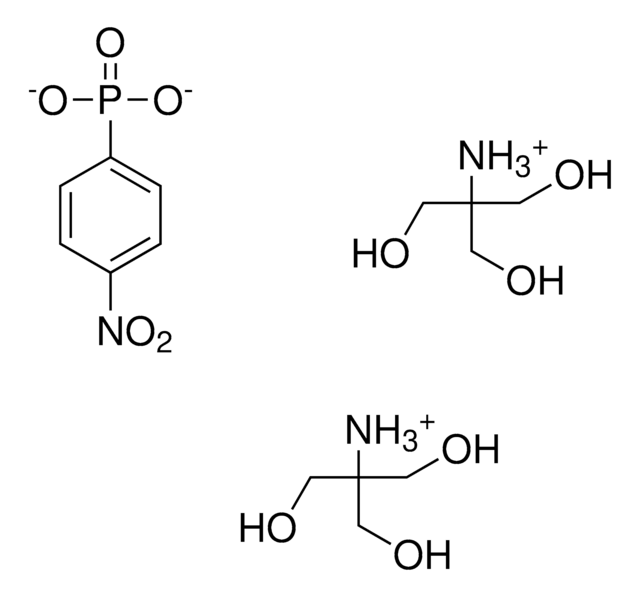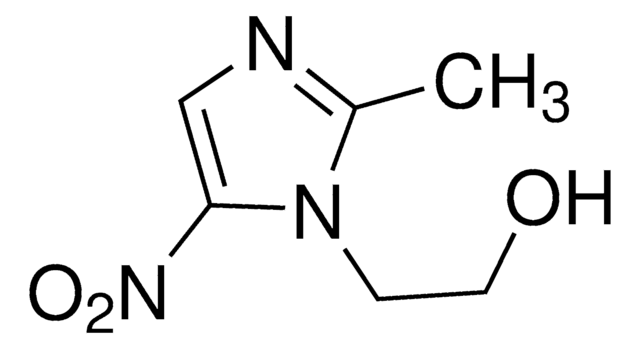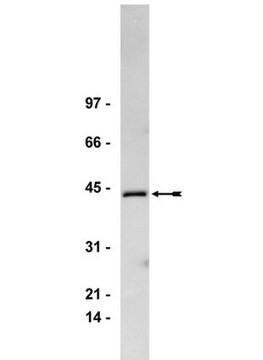E6405
Anti-Endothelial Cell Protein C Receptor antibody, Rat monoclonal
clone RCR-379, purified from hybridoma cell culture
Sinonimo/i:
Anti-EPCR, Monoclonal Anti-Endothelial Cell Protein C Receptor antibody produced in rat
About This Item
Prodotti consigliati
Origine biologica
rat
Coniugato
unconjugated
Forma dell’anticorpo
purified from hybridoma cell culture
Tipo di anticorpo
primary antibodies
Clone
RCR-379, monoclonal
Forma fisica
buffered aqueous solution
Reattività contro le specie
human
tecniche
flow cytometry: 5-20 μg/mL using HUVEC cells
Isotipo
IgG2a
N° accesso UniProt
Condizioni di spedizione
dry ice
Temperatura di conservazione
−20°C
modifica post-traduzionali bersaglio
unmodified
Informazioni sul gene
human ... PROCR(10544)
Descrizione generale
Specificità
Immunogeno
Applicazioni
Azioni biochim/fisiol
Stato fisico
Stoccaggio e stabilità
Esclusione di responsabilità
Non trovi il prodotto giusto?
Prova il nostro Motore di ricerca dei prodotti.
Codice della classe di stoccaggio
10 - Combustible liquids
Classe di pericolosità dell'acqua (WGK)
WGK 2
Punto d’infiammabilità (°F)
Not applicable
Punto d’infiammabilità (°C)
Not applicable
Dispositivi di protezione individuale
Eyeshields, Gloves, multi-purpose combination respirator cartridge (US)
Certificati d'analisi (COA)
Cerca il Certificati d'analisi (COA) digitando il numero di lotto/batch corrispondente. I numeri di lotto o di batch sono stampati sull'etichetta dei prodotti dopo la parola ‘Lotto’ o ‘Batch’.
Possiedi già questo prodotto?
I documenti relativi ai prodotti acquistati recentemente sono disponibili nell’Archivio dei documenti.
Il team dei nostri ricercatori vanta grande esperienza in tutte le aree della ricerca quali Life Science, scienza dei materiali, sintesi chimica, cromatografia, discipline analitiche, ecc..
Contatta l'Assistenza Tecnica.